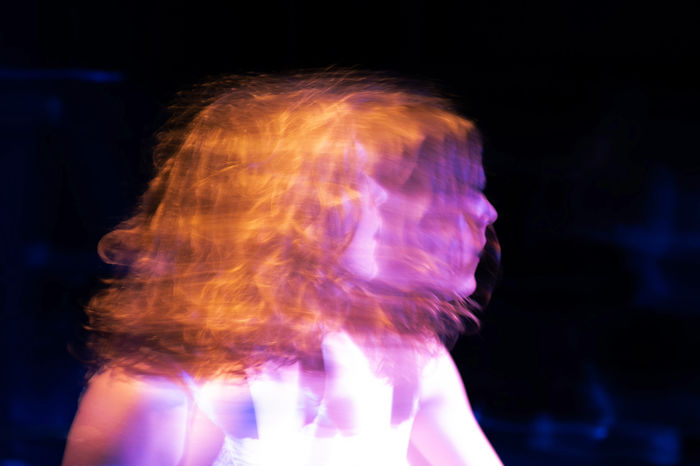Why the message belongs to the audience
The meaning of a play, Eleanor Baldwin argues, lives in the dialogue of its audience

The plays of Ancient Greece led me to study Classics. It was the events on stage that first captured my attention, but it was the questions surrounding the audience that truly caught it; when we study a script, is it the writer‘s intentions we draw out or merely a reflection of ourselves and our own assumptions? If theatre is a conversation, its reception is the part of the interaction that I’m most interested in.
“Theatre imitates, and it is in this imitation that our experience with a performance is grounded”
Theatre imitates, and it is in this imitation that our experience with a performance is grounded. The stage holds a mirror to our desire for introspection, for understanding. As an audience, we watch our questions, moral dilemmas, and uncertainties echoed back at us. The answers we take away are as multifarious as the experiences we may have in mind. It is this endless analytical possibility that makes theatre so engrossing, and interpretation so personal. This is enhanced by other elements of the medium. Often, in a show’s set, dialectical images or visual motifs pattern the backdrop of centre-stage action. We see these images through a vision layered by the contributions of directors, production teams, and actors, yet it is ultimately through our eyes that any meaning manifests. Our reception becomes the true performance.
Amidst manic revision sessions last Easter, I went to see Strangers with a friend at the Corpus Playroom. When we discussed it afterwards, I was surprised by how much our interpretations differed. My friend spoke of the alienation of forgetting, moved by the journey of the main character’s mother as she struggled with dementia. However, the chord that struck me was the fear of being forgotten by someone so close to you. Despite sitting together on the front row, the play had extended a hand to us in an individually unique way. I don’t suppose it had resonated with me in a way drastically different from anyone else, only that this resonance was, undoubtedly, my own.
“As a member of the audience, we are invited to participate in [theatre’s] collaborative process”
There can be a tension between what we expect to draw from a performance, and the message we eventually walk away with. One meaning pulses through the cadence of a play’s script. But, this meaning is often not fixed and instead, evolves throughout the development of a play from script to stage. As a member of the audience, we participate in this collaborative process, drawing interpretations that are not beholden to that original vision.
In Lent, the Pembroke Players’ adaptation of The Bacchae, titled Friends of the God, embraced this tension between expectation and reality. Directed by Louisa Hailey, the performance confronted its audience with ambiguity. It was unapologetic in its emotional demands, prompting its audience to engage with its themes intimately – facilitated by the small space of Pembroke New Cellars. The mirrors lining the upstage emphasised this element of intimacy, unnerving in the way they extended the stage to draw you in. Maddie Lock’s performance of Casey (this play’s version of Dionysus) was a particular highlight, hypnotic in the way she harnessed the seductive yet unsettling control of a cult leader. Her character left me with more questions than answers and yet – the very fact that it wasn’t clear what I was ‘supposed’ to take away – was what held my intrigue. The play’s visceral nature, uncompromised by a need to be aesthetically performative, made navigating its ambiguity all the more compelling. There is so much freedom to think when a play does not deliver its message directly into the palms of those watching but instead, encourages individual interpretation.
“There is a comfort in knowing that your interpretation belongs to you and that it does need to earn you a grade”
As an audience, we are impacted by the stories we watch play out, lamenting the struggles and losses of characters, applauding their victories – we leave the theatre feeling as if we are changed by them. But, can we truly be changed if we stop engaging the moment the curtain falls down? If we can remember the plot, why forget its point? If theatre is an active force that interacts with its audience, then it is crucial we take ownership of the message we derive from watching it. The meaning of a play, incorporeal and inconstant, lives in the dialogue of its audience.
So, my best advice for this year of theatre is to be active in your engagement. Make bold takes, good ones, and then some terrible ones (and swear they sounded better a couple of pints in). It is irrelevant whether the conversation afterwards is moral, philosophical, or about nothing ‘substantial’ at all. In an academically vigorous environment, there is a comfort in knowing that your interpretation – malleable and ever-changing – belongs to you and that it does not need to earn you a grade at the end of the year.
 News / Right-wing billionaire Peter Thiel gives ‘antichrist’ lecture in Cambridge6 February 2026
News / Right-wing billionaire Peter Thiel gives ‘antichrist’ lecture in Cambridge6 February 2026 Features / From fresher to finalist: how have you evolved at Cambridge?10 February 2026
Features / From fresher to finalist: how have you evolved at Cambridge?10 February 2026 Film & TV / Remembering Rob Reiner 11 February 2026
Film & TV / Remembering Rob Reiner 11 February 2026 News / Churchill plans for new Archives Centre building10 February 2026
News / Churchill plans for new Archives Centre building10 February 2026 News / Epstein contacted Cambridge academics about research funding6 February 2026
News / Epstein contacted Cambridge academics about research funding6 February 2026










